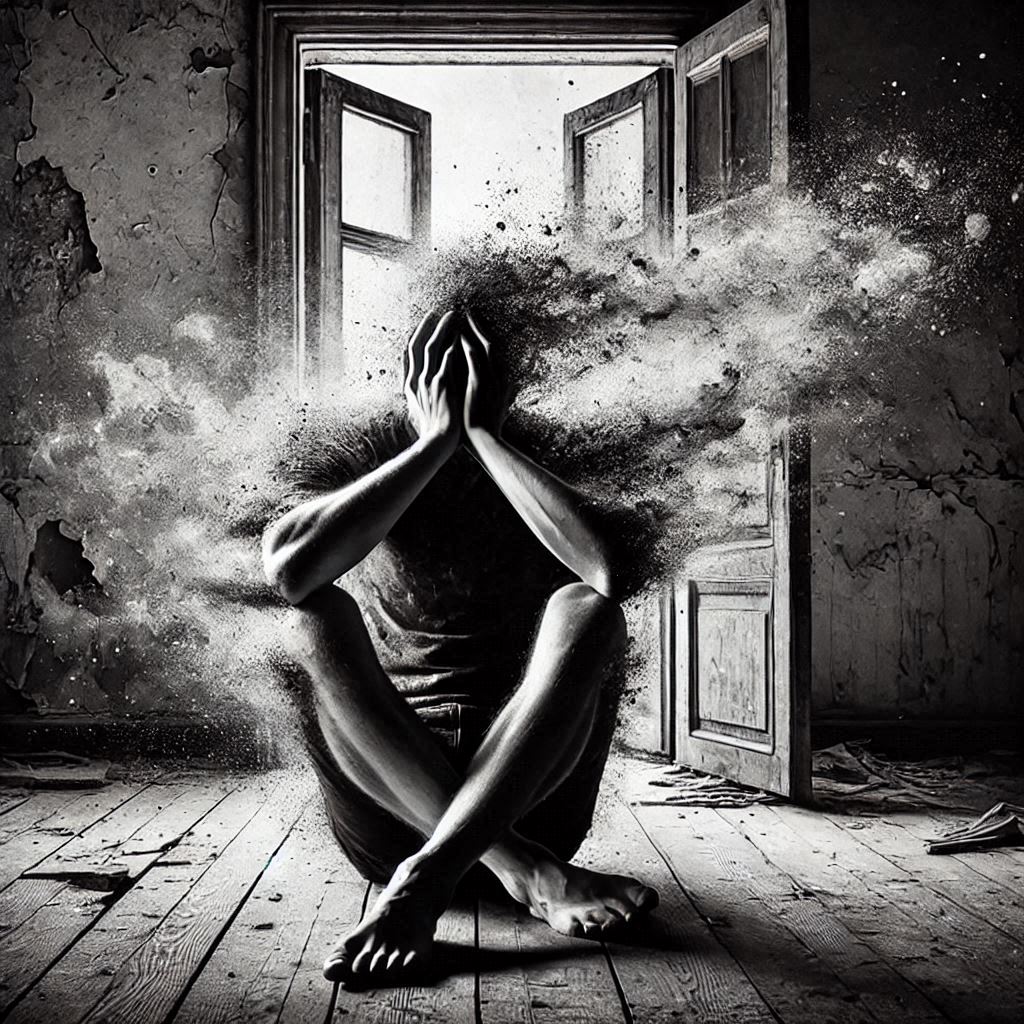Feeling overwhelmed with stress and suddenly everything goes dark? You’re not alone. Stress-induced fainting, also known as situational syncope, is a real phenomenon that many people experience. It typically happens in response to intense emotional triggers like fear, anxiety, or even excitement.
Imagine sitting through a nerve-wracking job interview or awaiting your turn for a public speech. Your heart races, palms sweat, and then—bam!—you’re on the floor. It’s not just in your head; your body physically reacts to extreme stress by momentarily shutting down.
This blog post will explore why stress can cause you to faint, uncovering the science behind it and pinpointing common triggers. We’ll delve into the physiology of stress responses and offer practical tips to manage those situations better, ensuring you stay upright and composed. So, let’s dive in and understand this intriguing interplay between stress and fainting.
Understanding Fainting Under Stress
Stress, often considered a normal part of life, can sometimes manifest in unexpected ways. Understanding why individuals may faint under stress requires a deeper look into the physiological responses and triggers that contribute to this phenomenon.
Physiological Response to Stress
When faced with stress, our body initiates a complex chain of reactions involving the autonomic nervous system and the release of stress hormones like cortisol. This fight-or-flight response aims to prepare the body to handle perceived threats. Increased heart rate, elevated blood pressure, and heightened alertness are common manifestations of this response. The surge of stress hormones can influence blood flow, potentially leading to fainting episodes in certain individuals. Research has shown a correlation between stress-induced physiological changes and the occurrence of fainting under stress [source].
Triggers for Fainting Under Stress
Various triggers can spark fainting episodes under stress, adding a layer of complexity to the phenomenon. Extreme excitement, anxiety, pain, hunger, and emotional shock are among the common triggers that can prompt an individual to faint. For instance, the overwhelming emotions experienced during a surprise birthday party or the anxiety of public speaking can push the body beyond its threshold, resulting in a temporary loss of consciousness. Real-life examples help shed light on how different stressors can impact individuals uniquely, emphasizing the intricate interplay between emotions and physiological responses that may culminate in fainting episodes.
By delving into the physiological responses to stress and recognizing the diverse triggers that can induce fainting episodes, we gain a more nuanced understanding of how stress intertwines with our body’s intricate mechanisms, potentially leading to unexpected outcomes.
Signs and Symptoms of Fainting Due to Stress
Feeling overwhelmed by stress can sometimes manifest physically, leading to fainting episodes. Recognizing the signs and symptoms of fainting due to stress is crucial in managing your well-being. Here are the key indications to watch out for:
Here is a Markdown list about the signs and symptoms of fainting due to stress, written in a casual yet professional tone with a focus on readability:
Before Fainting
- Dizziness or Lightheadedness: You may feel like the room is spinning or like you’re about to pass out.
- Nausea: Some people experience nausea or an upset stomach before fainting.
- Blurred Vision: Your vision may become blurry or you may see spots.
- Sweating: You might break out in a cold sweat.
- Ringing in the Ears: A ringing or buzzing sound in your ears can precede fainting.
During a Fainting Episode
- Brief Loss of Consciousness: You may temporarily black out or lose awareness of your surroundings.
- Pale Skin: Your face may appear pale or ashen.
- Feeling Weak or Shaky: You may feel weak in the knees or shaky all over.
- Slow Pulse: Your heart rate can slow down significantly.
After Fainting
- Confusion or Disorientation: You may feel confused or disoriented for a short period after regaining consciousness.
- Fatigue or Weakness: You may feel extremely tired or weak after a fainting episode.
- Headache: Some people experience a headache after fainting.
- Nausea or Vomiting: Nausea or vomiting can occur after regaining consciousness.
It’s important to note that if you experience frequent or recurring fainting episodes, it’s best to consult a doctor to rule out any underlying medical conditions.
Role of Emotional Triggers
Emotional triggers such as fear, shock, and anxiety can have a direct impact on the cardiovascular system, potentially causing a sudden drop in blood pressure. This drop can lead to light-headedness, dizziness, and in severe cases, fainting. Understanding the emotional aspect of stress-induced fainting is essential in addressing and managing these episodes effectively. Learn more about how emotional triggers affect fainting here.
Connection Between Mental Health and Fainting
The connection between mental health conditions like anxiety disorders and panic attacks with fainting episodes is significant. Individuals experiencing high levels of stress and anxiety may be more prone to fainting due to the impact of these conditions on the body. It’s crucial to prioritize mental well-being to mitigate the risk of stress-induced fainting. Discover more about the relationship between mental health and fainting for a comprehensive understanding.
Recognizing warning signs such as dizziness, lightheadedness, clamminess, and blurred vision is essential in averting fainting episodes triggered by stress. By being attuned to these symptoms, individuals can take proactive steps to manage stress levels and prevent potential fainting occurrences.
Treatment and Prevention Strategies
Stress-induced fainting episodes can be alarming, but with the right treatment and prevention strategies, you can effectively manage and reduce the frequency of such occurrences.
Medical Interventions:
It’s crucial to recognize when medical attention is necessary for stress-related fainting episodes. If you experience recurrent fainting spells, it is essential to seek help from healthcare professionals. They may prescribe treatments tailored to your specific condition. Non-pharmacological therapies and maneuvers can be effective in preventing symptoms and syncope onset. Such interventions aim to regulate blood flow and address underlying triggers. Immediate actions like helping the individual lie down and lifting their legs can aid in restoring blood flow.
Self-Care Practices:
In addition to medical interventions, self-care practices play a pivotal role in managing stress-induced fainting. Maintaining proper hydration and balanced nutrition are foundational aspects of overall well-being. Adequate hydration and nourishment can help stabilize blood pressure and prevent episodes of lightheadedness. Regular exercise not only boosts physical health but also enhances mental resilience against stressors. Mindfulness practices, such as meditation and deep breathing exercises, promote relaxation and emotional stability, reducing the impact of stress on the body.
A holistic approach to well-being that combines medical treatments with self-care practices can significantly alleviate the effects of stress-induced fainting. By incorporating stress management techniques, relaxation methods, and lifestyle adjustments into your daily routine, you empower yourself to proactively prevent fainting episodes in stressful situations. Embracing these strategies fosters a balanced and resilient mindset, enabling you to navigate stressors with greater ease and composure.
Explore more about preventing fainting and promoting well-being through relevant resources like Top Doctors and Healthline.
Conclusion
Stress is a significant player when it comes to fainting. Emotional triggers like anxiety, fear, and intense stress can create a situation where your body’s response is to shut down temporarily. This phenomenon, often referred to as situational syncope, is more common than you might think.
Being mindful of your stress levels is crucial. Understanding your triggers and learning how to manage them can prevent these unexpected episodes. Don’t hesitate to seek support—whether it’s talking to a friend, a therapist, or practicing stress-relief techniques.
Your well-being is essential. Keep an eye on how your body responds to stress, and remember, you have the power to take steps toward a healthier, more balanced life.








